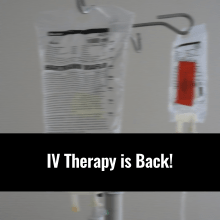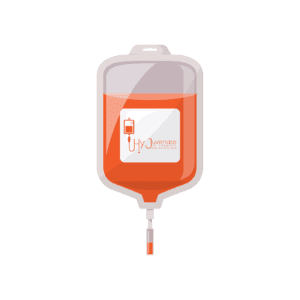Monoclonal Antibodies for COVID-19

hangover iv therapy
Monoclonal antibodies, expected to duplicate the body’s customary safe response, are open as a treatment for COVID-19 for patients at the high bet of development to difficult ailment. There are a couple of upheld treatments for Covid ailment 2019 (COVID-19) in hospitalized patients anyway relatively few for patients who are not crippled with the eventual result of being hospitalized. Monoclonal antibodies are one more hangover iv therapy for transient patients with COVID-19 who are at risk for the development of outrageous infection.
What Is a Monoclonal Antibody?
A checking specialist is a protein that is regularly made by the safe system considering tainting. A monoclonal neutralizer is a particle made in a lab that is expected to duplicate or update the body’s typical resistant system response against a gatecrasher, such as dangerous development or an infection. Going before COVID-19, monoclonal antibodies were made to treat a couple of viral illnesses, similar to Ebola and rabies.

Monoclonal antibodies partake in an advantage over various kinds of treatment for infection since they are made to expressly zero in on a major piece of the overwhelming collaboration. A monoclonal neutralizer is made by uncovering a white platelet to a particular viral protein, which is then cloned to effectively fabricate antibodies to zero in on that contamination.
Monoclonal Antibody Treatment for COVID-19
Outrageous serious respiratory problem Covid 2 (SARS-CoV-2) has a spike protein on the surface that helps the disease join and enter human cells. A couple of monoclonal antibodies have been made to bind to the spike protein of SARS-CoV-2 and square the disease from going after human cells. Patients with COVID-19 could get an intravenous (IV) combination of a monoclonal neutralizer, by and large in an emergency division, an imbuement local area, or one more transient setting, (for instance, the patient’s home or nursing home).
Monoclonal Antibodies for SARS-CoV-2 Variants
New varieties of the SARS-CoV-2 contamination have actually been perceived. These varieties emerge because of changes in the genome of the disease. Monoclonal antibodies stay convincing against the new SARS-CoV-2 variety called B.1.1.7 (first definite in the United Kingdom). In any case, a couple of changes could cause changes in the spike protein that could obstruct the sufficiency of and available monoclonal antibodies.
Reasonable Risks of Monoclonal Antibodies
A couple of patients could experience either an ominously helpless or nonallergic imbuement related reaction. The two reactions are a direct result of the commencement of the invulnerable system considering the neutralizer anyway occurs in different ways. Imbuement related reactions give off an impression of being exceptional anyway and can cause flushing, shivering, shortness of breath, or low heartbeat. There are moreover expected side effects of getting any IV medication, including distress, aggravation, or expansion around the IV site.
Who Should Have Monoclonal Antibody Treatment?
As of now, 2 monoclonal neutralizers things are being used to treat COVID-19 through a US Food and Drug Administration (FDA) Emergency Use Authorization. Disregarding the way that examiners are at this point acknowledging which patients with COVID-19 are presumably going to benefit from monoclonal neutralizer treatment, early data propose more conspicuous benefit in high-risk patients, including those more prepared than 65 years, with a covered safe structure, or with explicit diseases including heftiness.
Monoclonal antibodies are made arrangements for patients actually investigated as having COVID-19 who are not cleared out with the eventual result of being in the crisis facility yet who have some bet factors for outrageous infection. Giving the imbuement notwithstanding how early as possible over tainting might be critical, so patients should search for clinical thought and testing when they encourage aftereffects.
